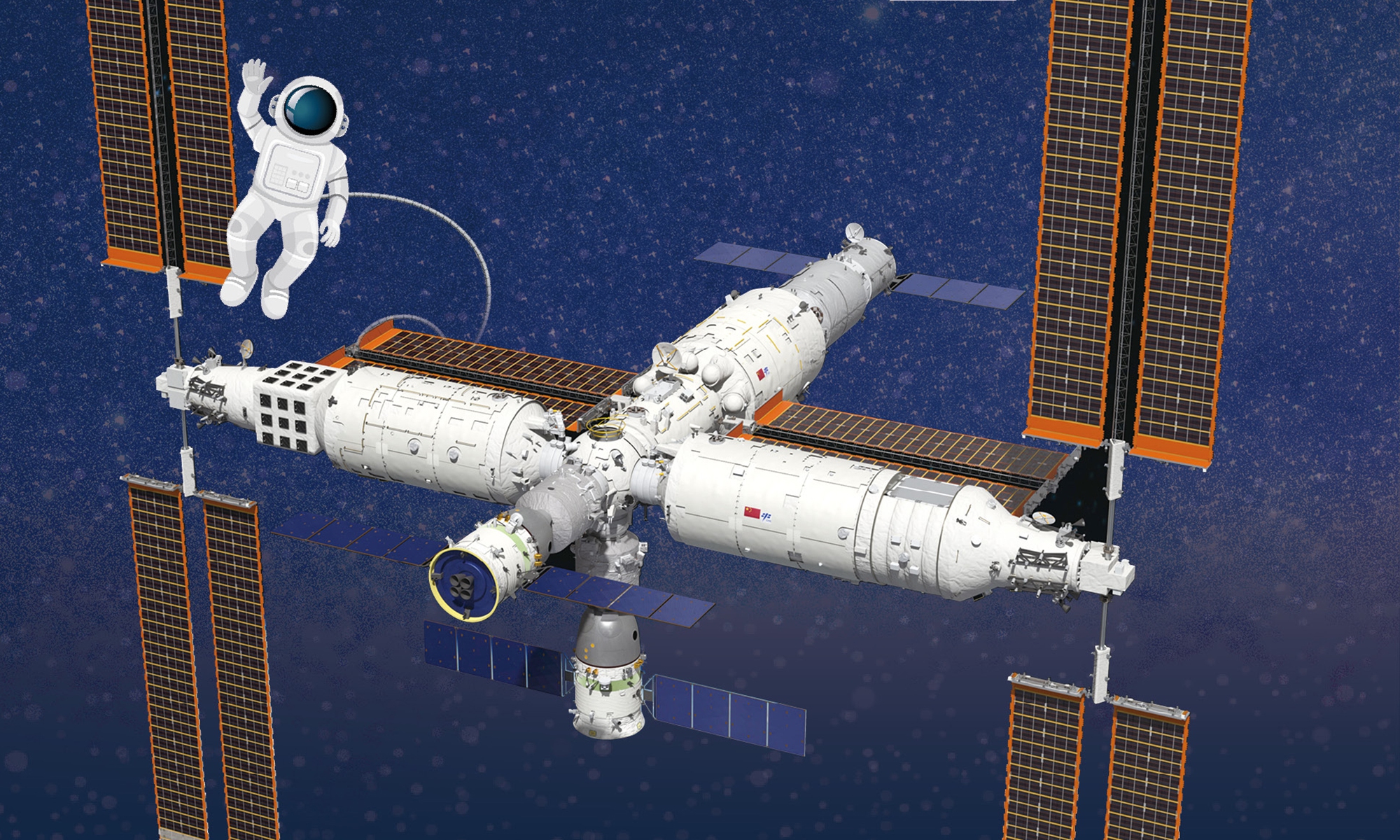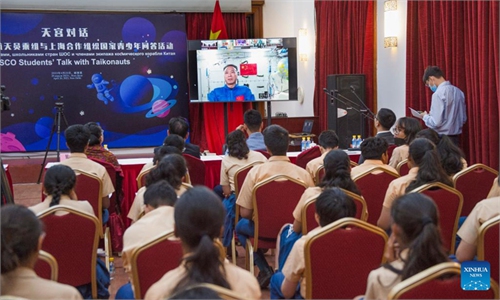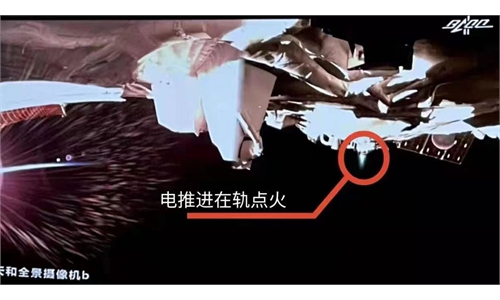China space station experiment facilities complete testing, ready to support large-scale research projects

China Space Station
Basic in-orbit testing of the science experiment facilities aboard China's Tiangong space station were completed recently, demonstrating they are operating in a stable and reliable fashion and are capable of supporting large-scale space scientific research, the Global Times learned from the Technology and Engineering Center for Space Utilization under the Chinese Academy of Sciences (CAS) on Tuesday.
Chinese manned space authorities and space watchers hailed the results as they marked the fact the Tiangong space station has moved into the development and application stage after completing construction at the end of 2022. The good news of its growing scientific research supporting capabilities also shows the space station has great practical value and will bring new impetus to the country's overall development on Earth.
According to the center, as of August 18, Tiangong has carried out more than 60 experiment projects and conducted tens of thousands of in-orbit experiments, obtaining nearly 60 terabytes of raw lab data and sending down more than 300 scientific experiment samples. Currently, scientists are studying such samples on the ground and some projects have achieved significant results.
Wang Qiang, a deputy director with the Technology and Engineering Center for Space Utilization and vice director-in-chief of the manned space engineering and application system, revealed that in the field of space life science, Chinese scientists have achieved for the first time the induction and differentiation of human embryonic stem cells, developing them into primordial germ cells, spermatogonial cells, and follicle-like cells on the space station.
They have systematically studied the effects of microgravity on the differentiation of stem cell lineages and developed various systems and devices for the in vitro differentiation of reproductive cells, which is expected to promote technological innovation in assisted reproductive therapy for infertility, Wang said.
In the field of space materials science, scientists have discovered the rapid eutectic growth mechanism of niobium-silicon alloy, laying a strong foundation for the development of next-generation high-performance niobium alloy materials for aerospace engines, according to the senior official.
Wang emphasized that the space station was built to serve the goal of practical application in scientific research.
"The construction and operation of the space station is a historical opportunity to promote the development of space science and application of science in our country. We will follow the overall goal of building a national space laboratory and select application and experimental projects that have international advanced level, significant scientific and technological value, and significant strategic application potential according to the strategic needs of national scientific and technological development and economic and social construction. We aim to make greater contributions to high-level technological self-reliance, national economic construction, and social development," Wang noted.
A space watcher based in Beijing told the Global Times on condition of anonymity said that although the recent good news of the station's growing scientific research support capabilities may not sound as exciting as the reports during the amazingly fast space assembly stage, they in fact speak louder about its great practical value.
In terms of the much-expected international cooperation on the Tiangong space station, China Manned Space Agency spokesperson Li Xiqiang said during a press conference in August that experiments involving the first batch of international payloads selected under cooperation between China and the United Nations Office for Outer Space Affairs will soon take place on Tiangong.
Lin said that 10 space application projects, jointly implemented with the European Space Agency (ESA), are progressing steadily.
"We have conducted various exchanges and cooperation with space agencies of many countries and regions as well as international organizations involving spacecraft technology, space science experiments, and astronaut selection and training," said Lin.



